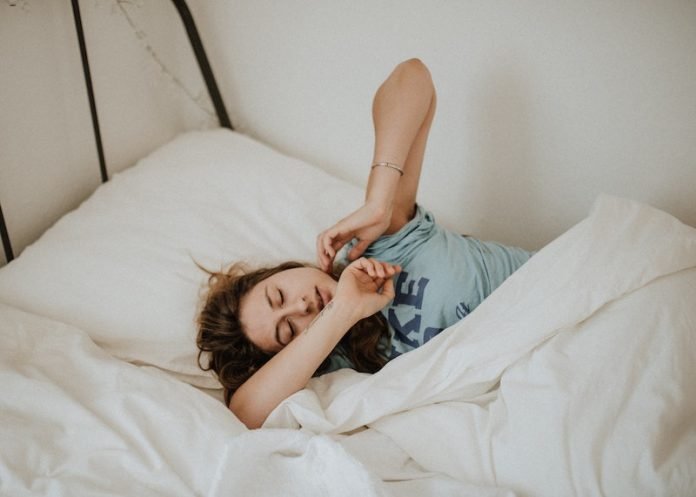
In a new study, researchers found that Insomnia, disrupted sleep, and daily burnout is linked to a heightened risk of not only becoming infected with coronavirus but also having a more severe disease and a longer recovery period.
They found every 1-hour increase in the amount of time spent asleep at night was associated with 12% lower odds of becoming infected with COVID-19.
The research was conducted by a team at Johns Hopkins and elsewhere.
Disrupted/insufficient sleep and work burnout have been linked to a heightened risk of viral and bacterial infections, but it’s not clear if these are also risk factors for COVID-19.
In the study, the team analyzed the responses to an online survey for healthcare workers repeatedly exposed to patients with COVID-19 infection, such as those working in emergency or intensive care, and so at heightened risk of becoming infected themselves.
The survey ran from 17 July to 25 September 2020, and was open to healthcare workers in France, Germany, Italy, Spain, the UK, and the USA.
Some 2884 healthcare workers responded, 568 of whom had COVID-19, ascertained either by self-reported diagnostic symptoms and/or a positive swab test result.
The amount of reported nightly sleep averaged under 7 hours, but more than 6.
After accounting for potentially influential factors, the team found every extra hour of sleep at night was linked to a 12% lower risk of COVID-19 infection.
But an extra hour acquired in daytime napping was linked to 6% higher odds, although this association varied by country.
Around 1 in 4 (137;24%) of those with COVID-19 reported difficulties sleeping at night compared with around 1 in 5 (21%;495) of those without the infection.
And 1 in 20 (5%;28) of those with COVID-19 said they had 3 or more sleep problems, including difficulties falling asleep, staying asleep, or needing to use sleeping pills on 3 or more nights of the week, compared with 65 (3%) of those without the infection.
Compared with those who had no sleep problems, those with three had 88% greater odds of COVID-19 infection.
Proportionally more of those with COVID-19 reported daily burnout than did those without the infection: 31 (5.5%) compared with 71 (3%).
Similarly, these respondents were also around 3 times as likely to say that their infection was severe and that they needed a longer recovery period.
These findings held true, irrespective of the frequency of COVID-19 workplace exposure.
The team says that lack of sleep and sleep disorders may adversely influence the immune system by increasing proinflammatory cytokines.
Previous studies linked burnout to a heightened risk of colds and flu as well as long-term conditions, such as diabetes, heart disease, musculoskeletal disease and death from all causes.
These studies suggested that burnout may directly or indirectly predict illnesses by occupational stress impairing the immune system and changing cortisol levels.
The study is published in BMJ Nutrition Prevention & Health.
Copyright © 2021 Knowridge Science Report. All rights reserved.



